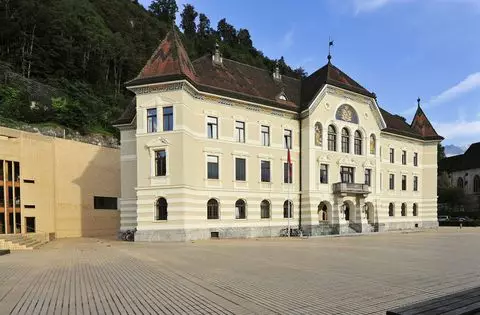Foreign policy priorities

The government building in Vaduz. (Photo: LLV)
Liechtenstein's foreign policy pursues clear priorities: They focus on bilateral relations with neighboring countries and other partner states; European integration via membership of the European Economic Area (EEA) and as an associated member state of Schengen/Dublin, as well as close cooperation with the European Union in many other areas; foreign economic policy with the four pillars of Customs and Monetary Union with Switzerland, the EEA, the European Free Trade Association (EFTA) and the World Trade Organization (WTO), as well as financial centre policy; multilateral engagement in the Organization for Security and Cooperation in Europe (OSCE), the Council of Europe and the United Nations (UN); and international solidarity within the framework of International Humanitarian Cooperation and Development (IHCD) as well as sustainability.
In international organizations, Liechtenstein has long been committed to a rules-based order as well as human rights and the rule of law. Strengthening international law and working to punish the most serious crimes are key aspects of this commitment. Liechtenstein also currently holds the chairmanship of the Committee of Ministers of the Council of Europe, under the motto "Common values, common future".